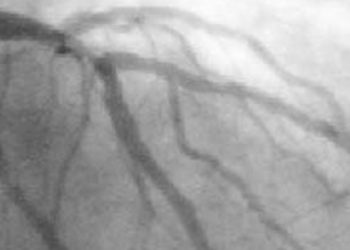ICD therapy significantly reduces death risk in patients with ischemic or nonischemic cardiomyopathy
1. Patients with ICD therapy had an overall reduction in all-cause mortality compared to conventional care.
2. The rate of sudden death was decreased in ICD patients.
Evidence Rating Level: 1 (Excellent)
Study Rundown: Implantable cardioverter defibrillators (ICD) are currently used to prevent sudden death in patients with ventricular arrhythmias. Studies have suggested that ICDs improve survival in patients with heart failure and reduced ejection fraction with or without non-sustained ventricular tachycardia or symptoms. Despite these studies, the benefit of ICD therapy compared to conventional care for primary prevention of death remains unclear. The authors of this study therefore aimed to compare these two different therapies for adults with ischemic or nonischemic cardiomyopathy. Generally, it was found that ICD therapy significantly reduces death risk in these patients. This study has several limitations. First, the meta-analysis used study-level data as opposed to patient-level data. Additionally, different medical therapy regimens were used across and within trials. Overall, the results of this study indicate that primary prevention ICD therapy compared with conventional care may be superior in terms of reducing all-cause mortality for patients at risk for sudden arrhythmic death.
Click to read the study in the Annals of Internal Medicine
Relevant Reading: Evaluation and Management of Patients After Implantable Cardioverter-Defibrillator Shock
In-Depth [systematic review]: The authors conducted a systematic review and meta analysis using MEDLINE, Cochrane Central Register of Controlled Trials, Google Scholar, and EMBASE databases, as well as several websites. In total, 11 studies were included in this review with a total of 8716 patients. It was found that the rate of sudden death fell from 12.15% for patients with conventional care to 4.39% for patients with ICD therapy (HR 0.41 [95%CI, 0.30 to 0.56]). The rates were similar in patients with ischemic and nonischemic disease. Additionally, all-cause mortality was reduced from 28.26% in patients with conventional care compared to 21.37% for patients with ICD therapy (HR 0.81 [95%CI, 0.70 to 0.94]; p = 0.043). Again, similar reduction magnitudes were observed between both cohorts.
Image: PD
©2017 2 Minute Medicine, Inc. All rights reserved. No works may be reproduced without expressed written consent from 2 Minute Medicine, Inc. Inquire about licensing here. No article should be construed as medical advice and is not intended as such by the authors or by 2 Minute Medicine, Inc.









